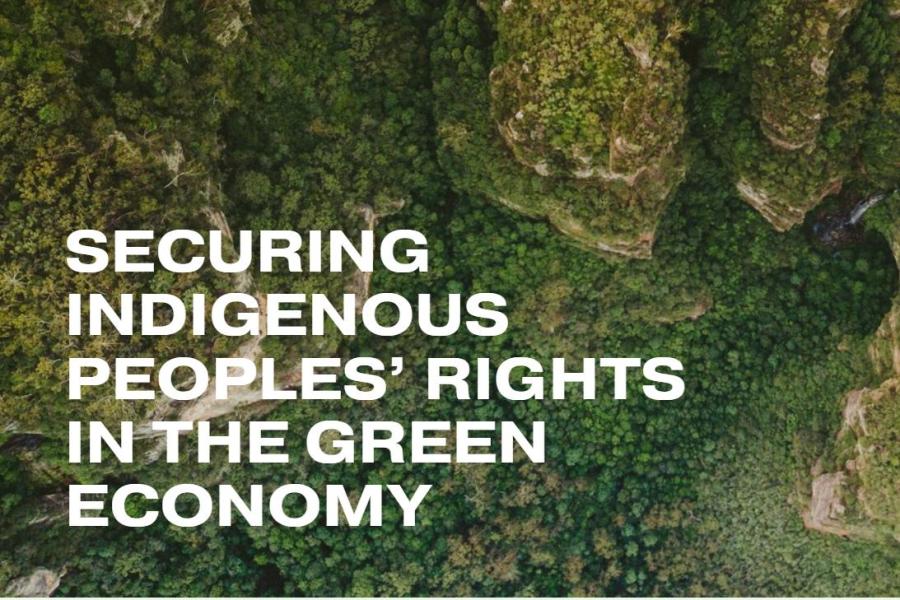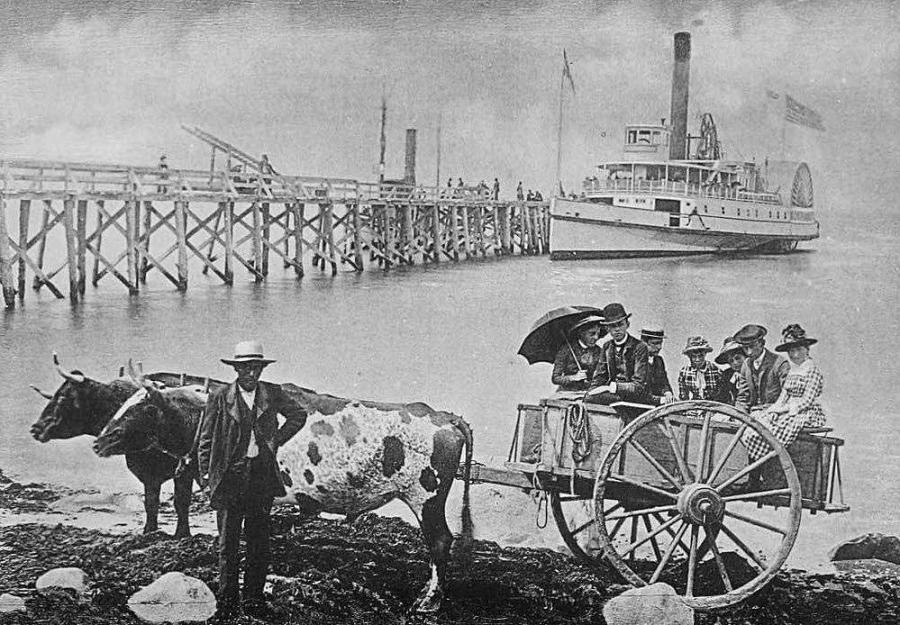Photo: International Indian Treaty Council’s 41st Annual Indigenous Peoples Thanksgiving Sunrise Gathering on Alcatraz Island (2019). Photo by Norm Sands (Yaqui/Apache).
With Native American Heritage Month well underway and Thanksgiving around the corner, it is an excellent time to celebrate Indigenous Peoples’ brilliance, honor and acknowledge truth in history, recognize whose land we are on, and work towards true allyship. Check out this resource list we put together, and explore the many ways to honor and celebrate Indigenous Peoples today, and everyday.
1. Decolonize Thanksgiving
Read and share these articles!
- The First Thanksgiving: Separating Myth From Fact by Ruth Hopkins, Dakota and Lakota writer at Tean Vogue
- Decolonizing Thanksgiving and Reviving Indigenous Relationships to Food by NDN Collective
- The Thanksgiving Tale We Tell Is a Harmful Lie. As a Native American, I’ve Found a Better Way to Celebrate the Holiday by Sean Sherman, the ‘Sioux Chef’
Attend an Event!
- 51st Annual National Day of Mourning on November 26, 2020, 12:00PM ET, Coles Hill, Plymouth, MA.
Virtual Talking Circle with International Indigenous Youth Council
Thursday, November 26 @ 12 PM - 3 PM PST
Hold space to communally process, listen and learn the truth about Thanks taking, examine the evolution of colonialism, and acknowledge the continual genocide and erasure of Indigenous people. All are welcome to attend. Accessible on Zoom: bit.ly/Thankstaking20Annual Thanksgiving Sunrise Gathering
Wednesday, November 25 @ 6-8 AM PST on Facebook Live
https://www.iitc.org/annual-thanksgiving-sunrise-gathering/
Listen, 11/26, 6-8 AM PST on KPFA 94.1 FM and online: https://www.kpfa.org
2. Learn about Land Acknowledgement, Traditional Lands, and Treaties
Do you know what a land acknowledgement is, why it is important and how to incorporate the practice into your own life? The Native Governance Center shares this handy Guide to Indigenous Land Acknowledgement.
If you’re unsure about the Indigenous Peoples land you are living on, you can search your location using Native Land, a growing database that documents traditional territories, languages, and treaties worldwide. This resource is also available as an app for your phone or tablet.
Other resources include Tribal Nations Maps, a source of hard copy maps that identify the traditional lands of Tribes in North and South America and the Caribbean, and the Smithsonian’s digital archive of treaties made between the United States and Indigenous Tribes.
Teachers can find lesson plans, activities, and more on TeacherVision’s TeacherVision's Native American Heritage Month page. Tribal Maps also sells great children’s books that feature quality Indigenous representation.
3. Honor Indigenous Stories
In addition to deepening your knowledge and awareness, it’s important to incorporate more Indigenous voices into your life, too.
Native Journalism and Publications
- First Nations Development Institute: 10 Featured Books for 2020
- Book Marks Reviews: 12 Books by Indigenous Writers
- Buzzfeed News: 14 Contemporary Books by Native American Authors
- Electric Literature: Decolonize Your Bookshelf with these Books by Native American Writers
- Open Education Database: 20 Native American Authors You Need to Read
- Sea Howl Bookshop: Indigenous Authors & History
- Tribal Maps: Children's Books by School Age Level
- Native American Journalism Association
- Indian Country Today
- Powwows.com
- Native News Online
Podcasts
- Indian & Cowboy
- All My Relations
- NDN Collective Podcasts
- The Native Seed Pod
- Coffee & Quaq
- Red Nation Podcast
Films and Theatre
- American Indian Film Festival
- 4 New Indigenous Films by and about Native Women by Indian Country Today
- The Upstander Project: Dawnland, First Light, Dear Georgina, and Bounty
- 8 Essential Films of the Native American Experience by Corinne Rice
- 10 Contemporary Native American Playwrights You Should Know
- Project HOOP - A national, multi-disciplinary initiative to advance Native theater
- Native Voices - A collection of First Nations voices as they share their experiences in (North) American theatre making
- Spiderwoman Theater, Brooklyn, NY - The first Native American women’s theater troupe
- New Native Theatre, St. Paul, MN
- Red Eagle Soaring Native Youth Theatre, Seattle, WA
4. Support Indigenous Businesses and Organizations
If you want to support Indigenous businesses but are unsure of the line between cultural appropriation and appreciation, check out Cultural Survival’s cultural appropriation resource list. You can also read this interview with Bethany Yellowtail (Crow and Cheyenne), curator of the B. Yellowtail Collective.
For a wide array of services and goods, check out NativeWeb's database of Native-owned businesses.
Indigenous Owned and Operated Businesses
Apparel, Jewelry, and Accessories
- B. Yellowtail Collective
- Beyond Buckskin Boutique
- SheNative Goods
- Trickster Company
- Urban Native Era
- Eighth Generation
- The NTVS
- OXDX Clothing
- Orenda Tribe
- Indigenous Cosmetics
- Cultural Survival Bazaars
- RezonateArt
- ButterflyBuffalo
- Eighth Generation
- Inspired Natives Project
- Buy Native
- Wampanoag Trading Post and Gallery
- Ockwaybay wampum
- First Light Fashion
Native Food Companies and Inspiring Native Chefs
- Bedré Fine Chocolate
- Tanka Bar
- Ramona's American Indian Foods
- Séka Hills
- Red Lake Nation Foods
- Wahpepah’s Kitchen
- Chef Tawnya Brant
- Chef Brian Yazzie, 'Yazzie the Chef'
- Chef Sean Sherman, the 'Sioux Chef'
- Chef Lois Ellen Frank, Red Mesa Cuisine
- Sly Fox Den
- If you missed it, check out our latest quarterly issue: Back to Our Roots: Indigenous Food Solutions
Indigenous-led Nonprofits
Support Native organizations who are working hard to improve the health, well-being, livelihoods and to uphold the rights of Native Americans across Indian country.
- Decolonizing Wealth - Social justice philanthropy
- Four Directions Vote - Advancing equality at the ballot box across Indian Country
- Honor the Earth - Raising awareness and support for Indigenous environmental issues through Indigenous wisdom, music, art, and the media
- IllumiNative - A movement to change the historical and contemporary narratives about Native Americans in the United States
- Indigenous Environmental Network - A grassroots organization that addresses environmental and economic justice issues
- NDN Collective - Dedicated to building Indigenous power through organizing, activism, philanthropy, grantmaking, capacity-building and narrative change
- Wisdom of the Elders - Preservation of oral history, cultural arts, language concepts, and traditional ecological knowledge
- Seeding Sovereignty- An Indigenous-led collective, works to radicalize and disrupt colonized spaces through land, body, and food sovereignty work, community building, and cultural preservation
- Native American Rights Fund- Provides specialized legal assistance to Native American tribes, organizations, and individuals nationwide
- Center for Native American Youth- Works to improve the health, safety, and overall well-being of Native American youth through youth recognition, inspiration and leadership; research, advocacy, and policy change
- American Indian College Fund- Provides scholarships to American Indian students
- First Nations Development Institute- Improves economic conditions for Native Americans through direct financial grants, technical assistance & training, and advocacy & policy
- Intertribal Agriculture Council - promotes the conservation, development and use of Native agricultural resources for the betterment of Native people.
- The Cultural Conservancy- protects and restores Indigenous cultures
- Wôpanâak Language Reclamation Project
- Native Land Conservancy
- North American Indian Center of Boston
- Aquinnah Cultural Center
- Tomaquag Museum
- Ohketeau



